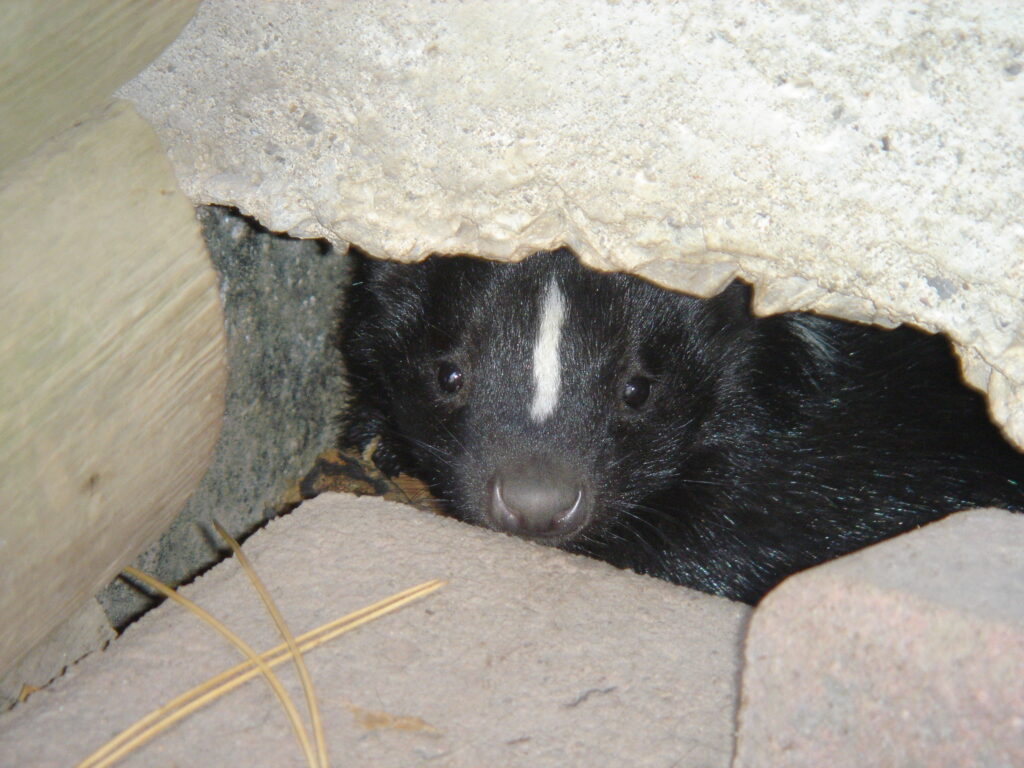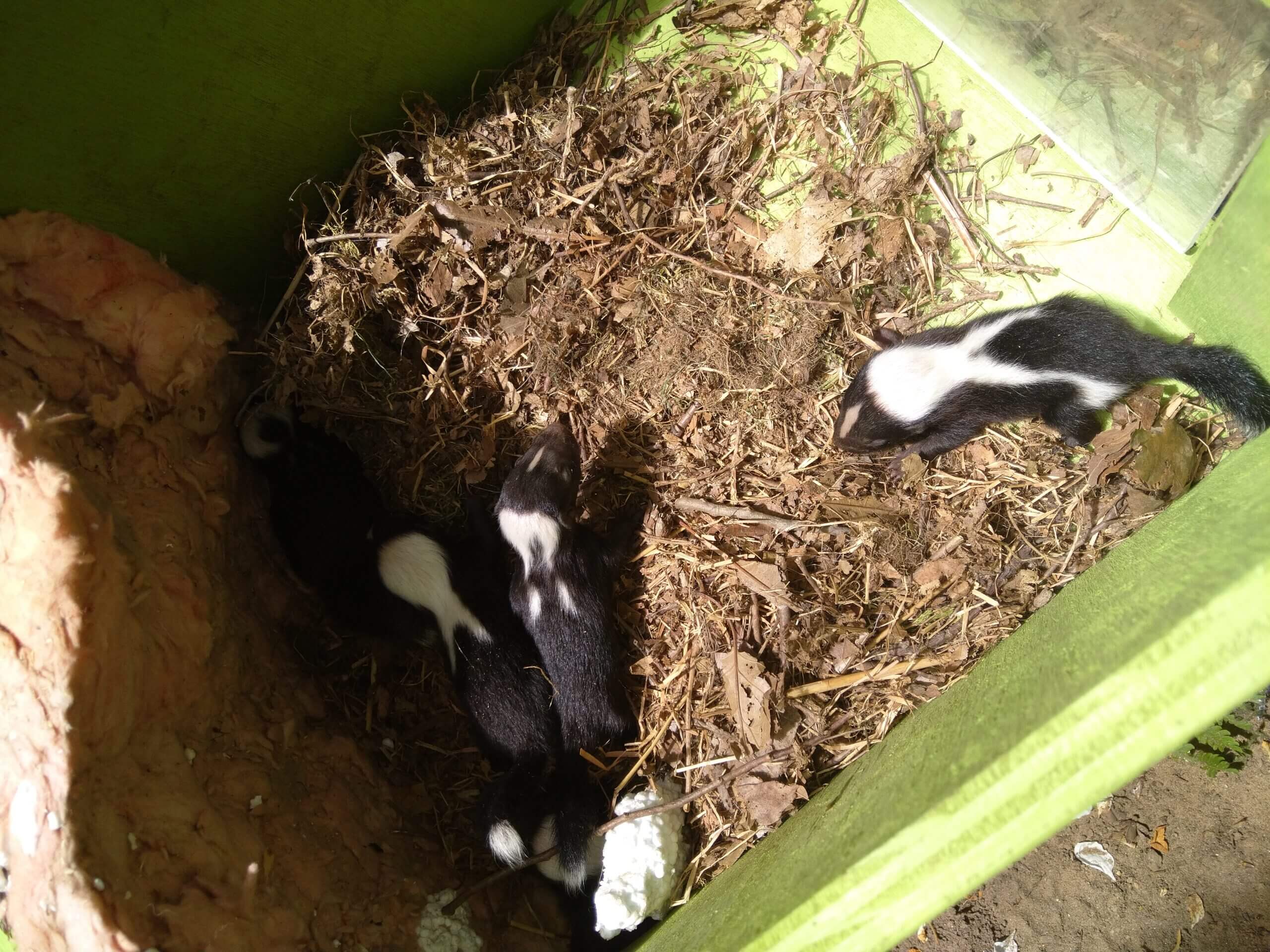Although skunks survive in the wild without much trouble, the animals enjoy munching on human food and making habitats in basements, sheds, woodpiles, and other buildings they can access. You’re more likely to smell evidence from a skunk than see one scurrying in your yard. Skunks fear humans and other large predators, but they’re not afraid to use their favorite defensive weapon. They’re not aggressive animals, but they can spray a victim from 10 to 15 feet away to protect themselves or their young. Skunk spray is a putrid substance, but are skunks dangerous to humans?
The Effects of Skunk Spray
Before a skunk sprays their target, they offer a brief warning. The creatures typically stomp their front paws and hiss before releasing their scent. Some skunks will even do a handstand before releasing their spray, but this impressive display is not something you want to witness. The smell can make you nauseous, and a direct hit could be strong enough to make you vomit. Skunk scent contains sulfuric acid that can damage your eyes and lead to blindness if the injury is not immediately treated. The acid in the scent also makes the smell harder to neutralize, and you’ll have a hard time sanitizing anything that a skunk sprays.
People with respiratory issues such as COPD are more vulnerable to the skunk’s scent and must avoid the animal’s spray to prevent an acceleration of their symptoms.
Damage From Scratching and Biting
Skunks can transmit rabies and should not be approached under any circumstances. Skunks are not going to chase you down or randomly attack you, but if they feel that their nest is in danger, they’ll defend their offspring by spraying, scratching, or biting. Although they usually run away from dogs, if the canine corners the skunk, it can wound the dog with its claws and transmit rabies to your best friend. When skunks are spotted near your property, it’s best to keep your pets indoors at night to keep them safe. If you notice a skunk during the day, contact a skunk removal service immediately. The animals rarely venture out in the daytime, and the ones that are visible during the day are probably infected with rabies. Skunks can also transmit salmonella and leptospirosis from their droppings.

The Skunk’s Ideal Habitat
Skunks are nocturnal animals that are most active at night when they’re foraging for food. They mostly dine on insects, plants and seeds, but they also love to eat food waste from the trashcan. Skunks build their nests in cool dark places that predators cannot easily see. Their sharp claws allow them to burrow under woodpiles and buildings with deteriorating foundations. If you see evidence of burrowing near your home or pieces of building materials with gnaw marks, the culprit could be a skunk.
Modifications to Your Property
Although the animals can be destructive, skunks are not difficult to keep out of your home. With a few modifications, you can make your property undesirable to the creatures. Walk around the exterior of your home and check for small holes or rotten wood that provide an entryway into your home. Keep all your pet’s food inside at night and secure your garbage in trash cans with durable latches that can be locked. Keeping your yard clean and free of waste will make your property less inviting to nocturnal guests. Installing motion-activated floodlights can also deter skunks since they prefer dark areas for food gathering.
Skunks can dine on the vegetables in your garden if the space is unprotected, but you can install a small fence to keep them out. However, you have to run the bottom of the fence into the ground at least six inches to prevent them from burrowing under it.
Rely on Professionals
When you see evidence of a skunk on your property, do not attempt to remove the skunk on your own. For wildlife control in Madison, you can rely on the professional technicians from Skedaddle Humane Wildlife Control. Contact us today for humane wildlife removal.




